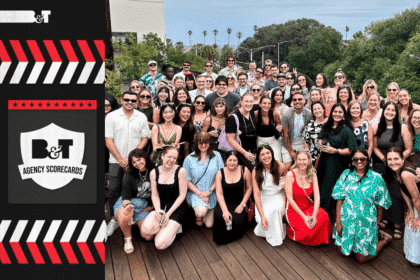The word ‘disruption’ is constantly floating around the industry, however Tyler Greer, head of strategy, APAC, Exponential questions whether we’re actually using the term correctly, or whether we should be using a different noun all together.
Disruption. Now there’s a word that’s living up to its name. Barely can a conversation around media, advertising technology or challenger brands be had without it worming its way in. It is absolutely ingrained into the modern, tech-driven vernacular. Which is exactly why it, and the kinds of innovation it describes, is the wrong word.
Disruption suggests something fleeting; an interruption in viewing before the inevitable return to normal programming. But by force of technology and innovation, job shifting, de-centralisation and other “stresses” the world is changing. Correction, the world has changed. And to describe what is underway as disruption is not only inadequate; it’s wrong.
The sort of things for whom the disruption label is generally applied includes favourites like Uber, AirBNB, Tinder, and Amazon. But it also applies in equal measure to food trucks and pop-up shops; businesses that are operating outside long established regulations or technological limitations, tax brackets, and bricks and mortar structures.
These changes are permanent. Ten years ago Apple disrupted the music industry. In 2015, despite the celebrated surge in vinyl and Apple’s recent announcement of a radio station, does anyone seriously think digital music is a phase? And whilst the individual companies like Uber may not be around in five years, the tech-built cat is firmly out of the bag.
A much better term for the changes we are seeing is creative destruction. This describes a moment in which innovation, creativity and technology are feeding each other at a pace fast enough and deep enough to undo long standing structures and rebuild them anew.
In 1996 Kodak employed 125,000 people across dozens of countries, and has been the dominant figure in the photography business for a century. In 2012 it filed for bankruptcy and disappeared as the brand most people know it as. That’s the same year that Facebook paid $1b for Instagram who, at that time, employed just 13 people. Instagram, along with a few others, and aided by a combination of social media and hand held devices offering high quality cameras, changed an entire industry overnight. There is no going back.
For the past decade, media has been undergoing its own profound changes. The broad status quo of the previous 60-70 years stability when consumers variously had the choice of TV, radio or cinema has been washed away, as has the way commercial opportunities have been sold. Programmatic buying and trading desks are so far mostly confined to the digital media sphere but this won’t last (as the month’s launch of MCN Programmatic TV proves). Nor will the way audiences consume media. What this means for buying and attribution models is still being understood. One thing is for sure though: it is unlikely to be TRPs.
Brands desperately need to understand the changes that are unfolding across their categories – especially from those who may traditionally sit outside their categories but have the technological leverage to assail them (Swatch or Apple on your wrist?).
But in change lies opportunity. There has never been a better moment for creative thinking in media and never a better time for those judging campaign success to understand the impact on consumers. However, as the well-worn cliché goes, letting go can often be the hardest part. Letting go of previous norms and ‘the way things are done’ is key in this new world in order to drive innovation. For digital advertising, this means moving away from pure response based numbers where we can and embracing impact metrics like attention and engagement. These measures will survive changes and future-proof campaign goals.
For those willing to embrace the world as it now is, and not regard it as a series of momentary disruptions, amazing things await.








